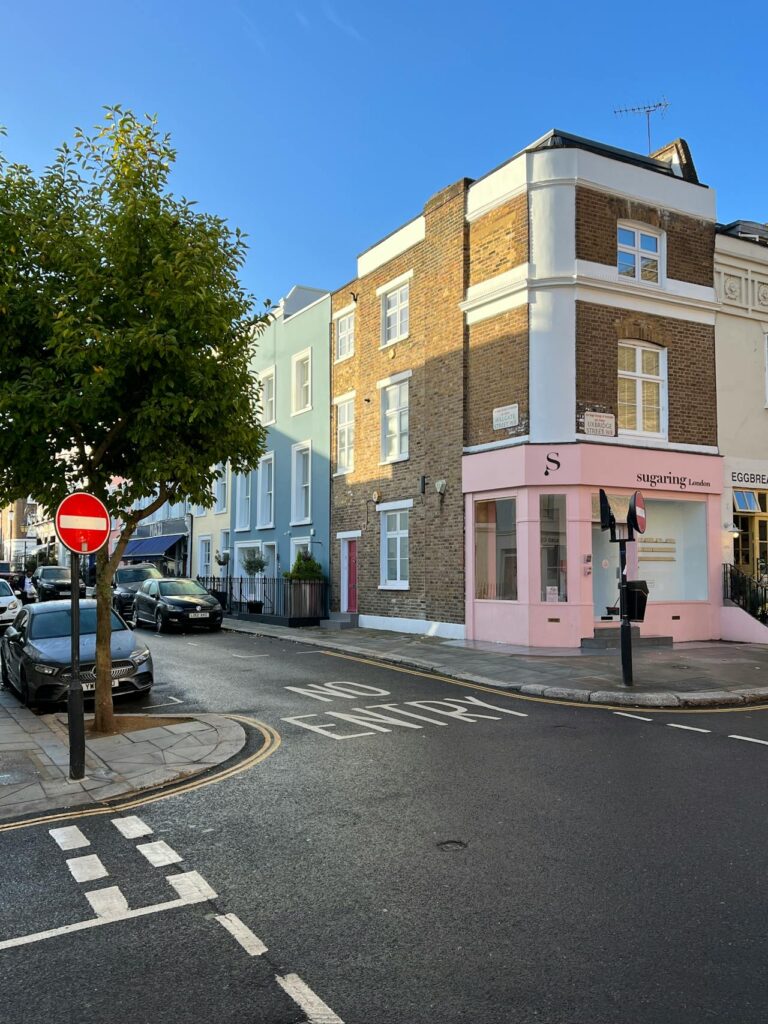Investing in UK real estate can be a lucrative opportunity for expatriates seeking to achieve high returns from their savings. The key to successful investment is understanding first what your short- and long-term goals are. Then understand the likely outcomes of each investment option and make sure that aligns with your goals.
Frequently Asked Questions about Investment and achieving high returns
How do you know you’re ready to invest in property?
Before diving into the specifics of property investment, let’s cover the readiness to start in property. Property investment requires significant time commitment, willingness to risk capital, and organising other parties. While you can find companies to outsource the management of the process, the ultimate responsibility lies with you and whether you’re ready to put your money on the line. You’ll need to be ready to handle challenges such as repairs, tenants, delays, market downturns, and periods without rental income.
Do you have the funds to Invest in Property?
First things first, don’t risk all your savings in one investment. Then make sure you have an emergency pot for any short-term requirements. Property is not a liquid investment, and you’ll need to sell for a discount to obtain money quickly, which is not advisable.
The amount of money you need for property investment varies based on the type of property. The more you have, the more strategies that are available to you. For example, if you have circa £70,000-£200,000, you can look at multiple properties, loan money, buy in cash, or refurb projects. Whereas, if you have circa £50,000 and below, you can look at singular buy-to-let with a mortgage or loaning money to partners.
Do you have the skills to achieve high returns?
Yes, you are! Property can be as passive as you want, and you can also be as active as you want. The more passive it is, the more trusting and reliant you will be on having a power team who’s handling the investment for you. For example, a property manager, contractor, lawyer, and broker. The more active you are, the more skills and research you need to do personally to make sure you’re as efficient as you can be. Moreover, the use of mentors is helpful when starting out.
Which type of property investment is right for me to achieve high returns?
This is heavily dependent on your overarching goals. When establishing what is right for me, I would always ask myself the following questions:
- How long am I willing to invest the money for, and when do I want my money back? Eg, under 2 years, 3-7 years, 8 plus.
- Do I want additional income to supplement my life, or is building a lump sum more important to me?
- What total return do I want for this allocation of my wealth (remember, the higher the return, the higher the risk)?
- How much is my budget (this dictates the type and location you can buy in)?
| Type of investment | Time Horizon | Capital/cashflow | Return | Budget |
| Buy to let | Long term | Either: depends on location and type. | Low-medium | Low-medium |
| HMO | Long term | Cashflow | Medium-high | Medium-high |
| Equity loan/Angel investor | Under 2 years | Capital | High | Low-medium |
| Development | Under 2 years | Capital | High | High |
| Refurbishment | Under 2 years | Both depend on strategy. | High | High |
| Commercial | Long term | Cashflow | Medium-high | Medium-high |
| REIT | Long term | Capital | Low-medium | Any |
Rental Yield vs. Capital Growth
One of the main aspects lies in balancing capital appreciation and cash flow.
“Growth is vanity. Cash flow is sanity; cash is king.”
In other words, growth is not guaranteed when you buy a property; the contracted cash flow is near enough guaranteed and is what keeps you going month to month. You can research market indicators that will likely generate capital growth in the future, but it not contracted or guaranteed. Understanding this balance is essential for achieving high returns on your investments.
Achieve high returns with Capital growth
This refers to the increase in property value over time. For instance, the average property price in the city of Bristol surged from £53,000 in 1997 to over £270,000 by late 2019, highlighting significant long-term capital growth of 8.6% average annual growth. Property prices generally rise over extended periods of time; these can depend on location and, moreover, on regeneration and trends. Research into areas that are receiving significant private and public investment are areas to target for above-average future growth. Although short-term fluctuations occur, as seen during the 2008 recession, making capital growth goals harder to predict.
Cashflow from UK property investment
For those seeking to generate additional monthly income, buying properties with good rental yield is crucial. When purchasing a rental property, you are essentially buying the right to receive that cash flow for the term of the contract in place. Note that rental yields across the country are different and tend to be lower in the south of the UK. Other considerations are the type of property assets you invest in. Buy-to-let normally generate income, although houses of multiple occupancy HMOs and commercial properties tend to generate higher yields and more secure cashflow.
Expat-friendly strategies to achieve high returns with property invesTMENT
1. Buying Off-Plan Apartments
One popular strategy is purchasing off-plan apartments in major cities like London, Birmingham, or Manchester. Investing in off-plan properties requires faith in the developer’s ability to deliver on time and to the promised quality. Moreover, if the developer folds, with it goes your 10%-20% deposit. It can take 1-3 years for the property to be built after you have reserved it, which ties up your capital with no cash flow generated, although you do receive any capital growth that occurs during that time.
Pros:
Established Markets: These cities are well-established with strong rental demand, making them relatively safer investments.
Low Maintenance: New properties typically require less maintenance, saving you time and money.
Simple: easy to execute from overseas as it’s a well-trodden path.
Cons:
Premium Pricing: Expect to pay a 10-15% premium compared to second-hand properties, which can impact your initial return on investment.
High-Interest Environment: In the current high-interest-rate climate, cash flow may be limited, turning this into a capital appreciation play. You may need to fund monthly costs, depending on your deposit level.
2. The BRRR Method
The BRRR (Buy, Rehab, Rent, Refinance) method is an effective strategy that builds your portfolio rapidly with the same amount of money. Being an expat, you’ll need a trusted partner on the ground to make sure this runs smoothly.
Pros:
Value Creation: This method allows you to enhance the property’s value through renovations. Once complete, you refinance to the increased value and recycle as much of the original money out of the property. Then you repeat the process with the lump sum and rent out the refurbished property to generate passive income.
Leverage: You can pull out equity after refinancing to reinvest in more properties. This gives you the ability to scale quickly using the same lump sum.

Cons:
Trusted Partnerships Needed: If you’re living abroad, you’ll need reliable partners in the UK to manage renovations and tenant placement, often requiring payment for their services or a share of profits.
Time-Intensive: Managing a BRRR strategy from abroad can be challenging and may require more hands-on or time involvement than you anticipate.
3. Becoming an Angel Investor
Another approach is to loan your money to individuals or businesses in the UK in exchange for fixed interest or a share of profits.
Pros:
Passive Income: This strategy can provide a steady stream of passive income without the hassle of property management and ownership.
Reduced admin: This offers investment exposure to the UK real estate market without having to deal with higher stamp duty and higher interest rates because you’re living overseas.
Cons:
Risk of Default: There’s always a risk that the borrower may default, leading to potential losses. You’ll need to have confidence in the individual and the deal you’re investing in, and make sure to have a first reserve or a personal guarantee if the deal goes wrong.
Limited Control: As an angel investor, you might have little say in the operations of the business you’re funding.
4. Commercial Real Estate
Commercial property is a high-yield investment option that presents long-term contractual revenue.
Pros:
Lower Stamp Duty: Purchasing commercial properties comes with lower stamp duty rates compared to residential properties. Making your entry costs lower and ultimately increasing your return on investment.
Cashflow: Commercial typically offers better yields and longer leases, which ensures more stable cash flow. Also, if tenants get into rent arrears, you can regain the building easily compared to residential, where it’s very hard to regain possession.
Value-Add Opportunities: There are numerous avenues for adding value, such as renovations or repositioning the use of the asset to say residential.

Cons:
Tenant due diligence: Finding reliable tenants requires thorough due diligence, which can be time-consuming and complex.
Sourcing Challenges: If you’re not knowledgeable about the market, sourcing good commercial deals can be difficult.
Rent is directly linked to value: if you agree to a reduction in the rent of a commercial property, then this directly effects the value of the property.
5. Holiday Lets
Investing in holiday rental properties can yield substantial returns in popular tourist destinations.
Pros:
High Rental Income: Holiday lets can command higher rental prices compared to long-term rentals, especially during peak seasons. Rented out on a per-day basis compared to monthly is how the price is so much higher.
Personal Use: You have the option to use the property for personal holidays, providing both investment and leisure benefits.
Cons:
Regulatory Hurdles: The holiday rental market can be subject to strict regulations, which may vary by location.
Management Intensive: Managing a holiday let requires more effort, including cleaning, maintenance, and guest communications.
Investment or a home: Holiday lets commonly get lost between being an investment and a home, therefore it doesn’t end up achieving the investment returns you desire. Moreover, you still have to work around the punters for when you want to use the accommodation, and so it doesn’t serve as a home as well.
Conclusion on how to achieve high returns as an expat
For expatriates looking to achieve high returns on UK real estate investments, understanding various strategies is crucial. Whether you choose to buy off-plan apartments, engage in the BRRR method, become an angel investor, explore commercial properties, or invest in holiday lets, each approach has its own unique benefits and challenges. By carefully assessing your options and aligning them with your investment goals, you can maximise your ROI and build a successful real estate portfolio in the UK whilst living overseas.






